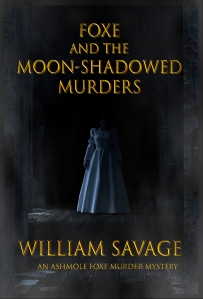
How to Find that Special Person
Amongst the gentry of the eighteenth century, marriage was a serious matter. A good marriage could bring you wealth, patronage and important social and political contacts. Affection was hoped for, but probably not so important on either side. Having a legitimate heir was certainly desirable, but time and again it was proved that procreative sex and the sex based on desire existed in different spheres – especially for chauvinistic Georgian men. Marriage was about business, not emotion.
Family contacts were probably the most usual way of bringing potential marriage partners together, to the point where each could discover enough of the other to decide whether to enter what was essentially a business partnership. However, female mortality was high, due to the dangers of almost continuous pregnancies. Many a man in later life found himself back in the marriage market. Mistresses were fine for fun and games, but a new wife would need to be found to run the household and be a suitable partner for polite social occasions.
“Tall and graceful in her person …”
As newspapers proliferated, they became a useful place in which to make your needs known via an advertisement. Recently, I found an unusually lengthy and detailed one. I shall assume it was genuine, though I cannot be completely sure of that. However, it must have been expensive to place, so I think it would have been rather too costly to be a spoof. It appeared in the Daily Advertiser, where it was unusual enough to attract the attention of the editor of The Gentlemen’s Magazine, who reprinted it in his edition for May 20th., 1750. Like its modern counterparts, the text is carefully anonymous, with answers to be directed to the Smyrna coffeehouse, addressed to A. B. However, it’s unusual enough to be worth dissecting in detail.
- The advertisement is not directed at eligible women, but at those who might know of such a woman as the writer is looking for. The advertiser assumes there will be a go-between of some kind, as there would in a marriage promoted by family or friends.
- The man describes himself as ‘fifty-two years of age next July, but of a vigorous, strong and amorous constitution’. Even more important, he has an income of £2000.00 a year: perhaps £250,000.00 in modern spending power.
- The woman he wants should be aged between 38 and 45. This marriage is not about childbearing. Perhaps he already has heirs and does not want his estate to have to provide for yet more children.
- He isn’t looking for a large dowry either. Indeed, he offers his bride a jointure (a widow’s income) of £600.00 a year (around £65,000 to £70,000 today). For that, however, she must be willing to live in the country all year. It sounds as if he’s a country squire and wants to make sure his new wife won’t gad around in London part of the time, spending his money.
So far, so moderate. His demands in terms of the lady’s appearance are far more stringent.
Tall and graceful in her person, with more of the fine woman than the pretty one; good teeth, soft lips, sweet breath [Sounds like the signs of a good horse!] with eyes no matter what colour, so they are but expressive; of a healthy complexion, rather inclin’d to fair than brown; neat in her person, her bosom full, plump, firm and white; a good understanding, without being a wit, but chearful [sic] and lively in conversation, polite and delicate of speech, her temper humane and tender, and to look as if she could feel delight where she wishes to give it.
Anything Else?
Well, that last part, coupled with the man’s description of himself as having an amorous and vigorous constitution, does suggest he expects her to enjoy a spot of rumpy-pumpy from time to time! And affection, even love, is definitely not ruled out.
… it is to be hoped, she will have a heart above all mercenary views, and honest enough not to be asham’d [sic] to own, she loves the man whom she makes her choice.
Somehow, I can’t help hoping this man found his late-flowering love. There’s something naive and touching about the mix of hard-headed financial incentives, careful requirements for age, looks and willingness to leave city life behind, and that final, wistful hope that his new wife might even love him as well. It’s a more romantic proposal than it looks at first.
William Savage lives near the beautiful North Norfolk coast in Eastern England and writes historical mystery novels set in Norfolk between 1760 and 1800. The first book in the series, “An Unlamented Death”, appeared in January 2015. A second book, “The Fabric of Murder” was published on May 1st, 2015. Will is also a local historian. In that guise, he researches topics relevant to the general period of his historical writing, gives talks to local groups and societies and is a regular volunteer guide at a nearby National Trust property. He finally has time for doing all this now he has retired.


